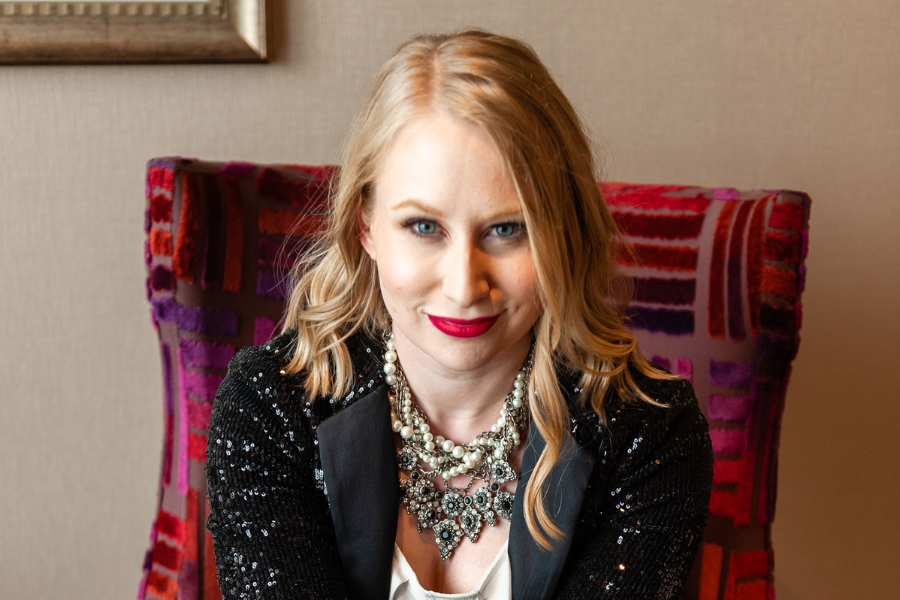

Sarah Paulson’s business is unlike most financial advisories because of two things it doesn’t have: an asset minimum and an office.
Both of those details were a consequence of the pandemic, Paulson said. Early in the Covid days, she was working as a trust officer at Associated Bank.
“I wasn’t really feeling fulfilled helping the ultra-wealthy,” Paulson said. She didn’t like “the idea that I was holding the hands of those people who already have so much money … while my own friends were getting laid off, and they had student loans, mortgages, taking care of their families, and there were no resources, nowhere for them to go.”
She switched gears in 2021 and set up her own financial planning practice, Valkyrie Financial, based in Appleton, Wisconsin.
Paulson has no asset minimum for clients — meaning that most are still working to build an investment base, and some have net negative assets.
“I do a subscription base, so as long as you have an income, you can have access to good financial advice,” she said. “There should be financial advice for everybody. You shouldn’t have to have hundreds of thousands of dollars saved up to qualify.”
While most of her business with the roughly 20 households she works with is subscription-based, she also has a small asset-based component, representing about $6 million under management, she said.
The sweet spot for the business is her generation, millennials, with most clients in their mid-to-late 30s, Paulson said. Helping people in her peer group build wealth is a huge motivator. As a theater major early in her college days, she knows she could have followed a career with thin prospects for financial security.
But a conversation with a 401(k) rep when she was just 18 piqued her interest in economics, and that led to an internship at Merrill Lynch.
Another cause that's important to her is supporting women. “A lot of traits that make financial advisors very good are feminine,” Paulson said.
That's also a big part of her nonprofit work — she is on the board of the Women's Fund for the Fox Valley Region, which supports women and girls through numerous initiatives.
Even while women have made strides in the financial services industry, there remains a commission-and-sales mentality that evokes Wolf of Wall Street vibes, which can discourage women from pursuing careers, she said.
In her own life, there is something Paulson struggles with that will be familiar to many.
“I am time blind. I cannot have a sense of time to save my life,” she said. “It’s not a fun trait to be known for.”
Something that surprises her about the financial advice business, she said, is that there's so much demand for subscriptions but that most other advisors don’t appear interested or haven’t figured it out yet.
“It still blows my mind when I go to conferences,” she said. “What are all these super smart people missing that I’m not? … There are very few advisors that work primary on subscriptions.”
Paulson hasn’t met most of her clients face-to-face. They’re spread around the country, and they usually find her while searching online for subscription-based advisors, she said.
“If any client really wants to meet with me in person … I would rather meet with them in their home, a coffee shop or a bar — someplace that feels comfortable to them,” she said.

Relationships are key to our business but advisors are often slow to engage in specific activities designed to foster them.

Whichever path you go down, act now while you're still in control.

Pro-bitcoin professionals, however, say the cryptocurrency has ushered in change.

“LPL has evolved significantly over the last decade and still wants to scale up,” says one industry executive.

Survey findings from the Nationwide Retirement Institute offers pearls of planning wisdom from 60- to 65-year-olds, as well as insights into concerns.
Streamline your outreach with Aidentified's AI-driven solutions
This season’s market volatility: Positioning for rate relief, income growth and the AI rebound
